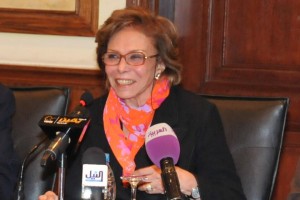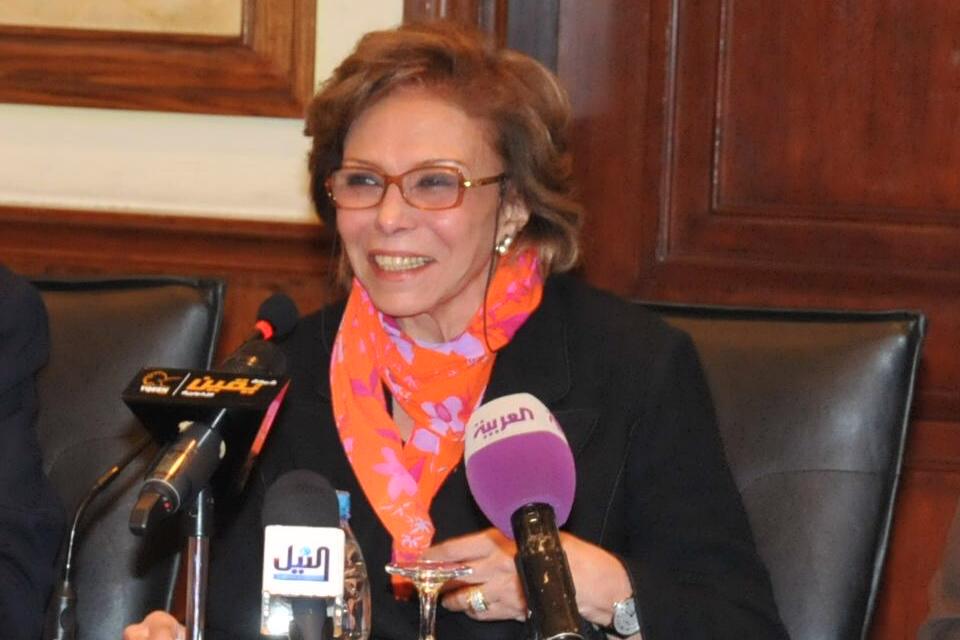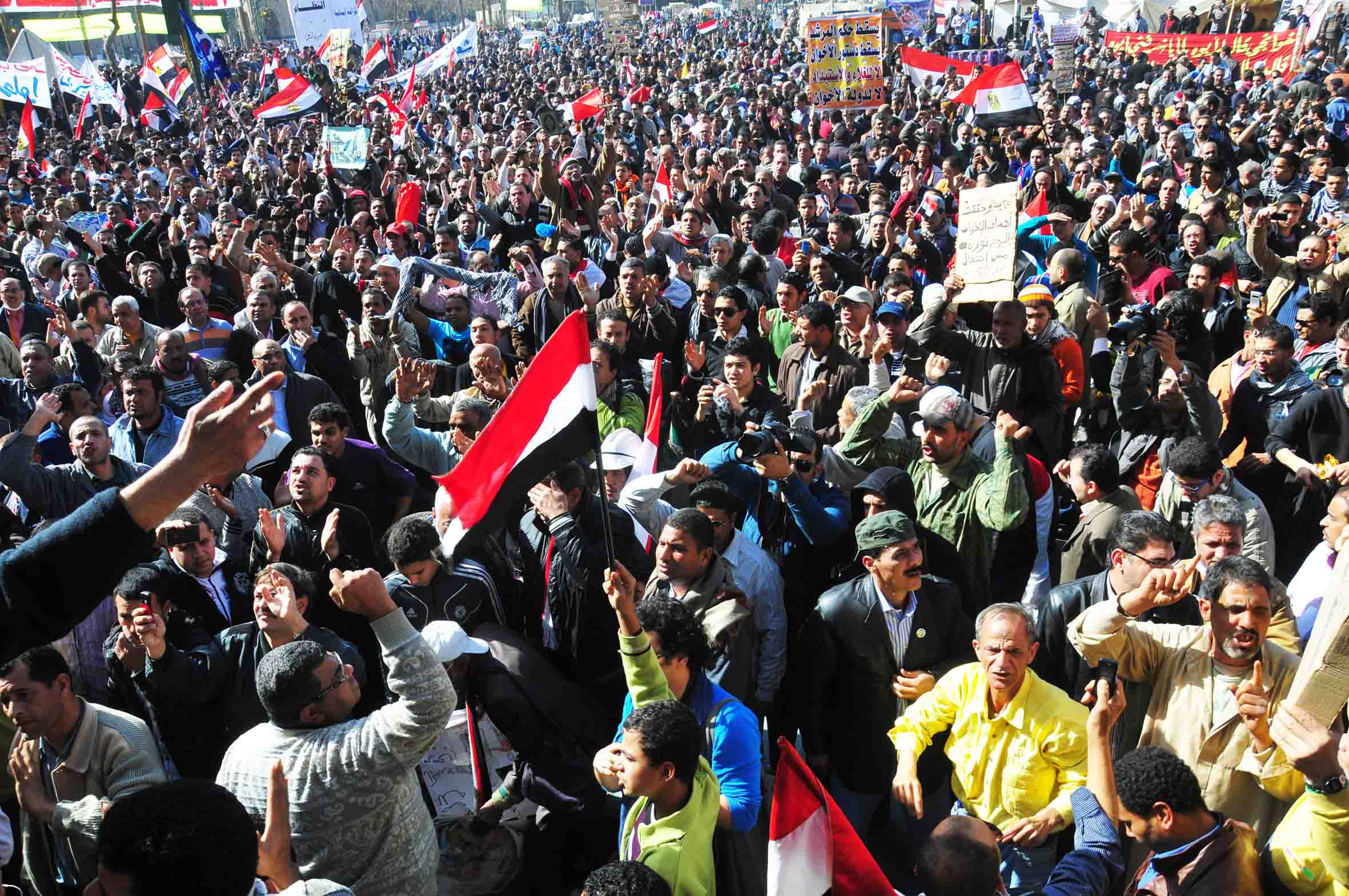
(Photo from National Council for Women Facebook page)
Egypt has achieved little regarding the United Nations Development Program’s (UNDP) third Millennium Development Goal (MDG) of promoting gender equality, said National Council for Women (NCW) Chairman Mervat Al-Tallawi.
The NCW held a press conference on Tuesday to announce the outcome of their representation of Egypt at the 58th UN Commission on the Status of Women. She said that this year’s session, held from 10 to 21 March, focused on the MDGs, a set of eight international development goals established in 2000 following the UN Millennium Summit. The third goal aims to promote equality and empower women by eliminating gender disparities in education, employment and government.
“We still have a long way to go when it comes to achieving the third MDG despite [achievements made] in the 2014 constitution,” Al-Tallawi said.
Article 11 of the constitution obliges the state to achieve gender equality regarding civilian, political, economic, social and cultural rights. It also urges the state to take the necessary measures to ensure women’s fair representation in parliament and calls for an end to discriminating against women. The article obliges the state to protect women against all forms of violence and to provide mothers and children with adequate care.
The progress made in the constitution “will go to waste if women’s representation in parliament remains at 2%,” Al-Tallawi said.
Article 102 of the constitution states that the House of Representatives is to be formed of at least 450 members. The Constituent Assembly which drafted the constitution, and which included Al-Tallawi as a member, shot down a proposal to set a parliamentary quota for women.
The NCW chairman said she met with Minister of Transitional Justice and House of Representatives Amin El-Mahdy on Monday to discuss a new law to govern the parliamentary elections. “We need at least 100 or 150 women to be members of the next parliament,” she said.
“Egypt ranks lowest in the Arab world when it comes to achieving the third MDG,” Al-Tallawi said.
The NCW chairman nevertheless said that Egypt has achieved remarkable progress in other MDGs, such as achieving universal primary education (especially for girls), reducing child mortality and improving maternal health.
Al-Tallawi said that the Egyptian delegation worked on “clarifying Egypt’s image” and correcting the “false claims which have surfaced since the 30 June protests in regards to the existence of a military coup and violations of human rights”.
“We have attacked delegations that paint an image of Egypt different [from the truth],” she said. She added that the Egyptian delegation rejected “double-standards” practised by “western countries” in regards to human rights, as well as rejecting “economic practises” aimed at pressuring Egypt such as the use of sanctions or suspending aid. Al-Tallawi also stressed her “complete rejection of the use of international media outlets to tarnish Egypt’s reputation.”
Al-Tallawi was also part of the delegation representing Egypt in last year’s session, which was headed by Pakinam Al-Sharkawi, former presidential assistant for political affairs. Tensions rose within the delegation after the Muslim Brotherhood accused the Egyptian delegation of drafting a declaration regarding violence against women which “contradicts the principles of Islam and destroys family life and the entire society.”




